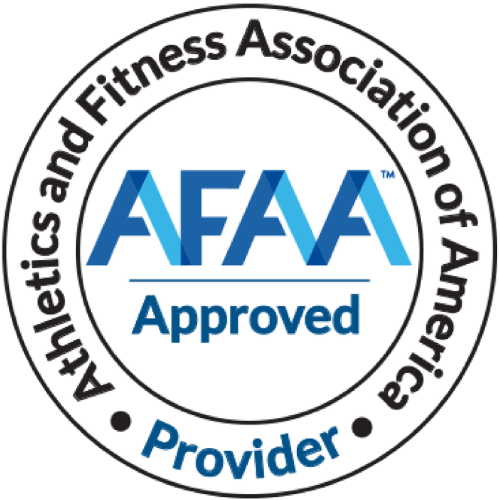When it comes to health goals, everyone is on a unique journey. For some, losing weight is a significant aspect of achieving those goals. You might find yourself wondering, “Are weight loss drugs bad for you?” and considering if they could be a potential solution.
Weight loss drugs, also known as anti-obesity medications, are designed to help individuals lose weight when lifestyle changes alone aren’t enough. Lately, they have been gaining popularity, spurred on by societal influences and media representation. With so much buzz, it might cross your mind more than once if weight loss drugs can really help or are weight loss drugs bad for you in the long run.
In this article, we at RxFit will explore these questions and guide you through making informed decisions about your health journey. With experience as professional fitness trainers, we offer the expertise you need to make the best decisions for your health and well-being.
Types of Weight Loss Drugs
Not many are aware that there are different types of weight loss drugs. These drugs act on the body in various ways. Some decrease appetite, while others limit nutrient absorption, and some increase metabolism or calorie expenditure. Here are some of the main types:
Prescription Weight Loss Drugs
Prescription weight loss drugs work in different ways to help you shed those extra pounds.
One common method is suppressing appetite, which essentially tricks your brain into feeling full even when you haven’t eaten much. This can help reduce your overall calorie intake.
Another popular mechanism is decreasing the absorption of certain nutrients, such as fat so that fewer calories are absorbed from the food you eat. Some medications boost your metabolism, so you burn calories more efficiently or increase your energy expenditure, which means your body uses up more energy in the form of calories.
Here are a few examples of prescription weight-loss drugs:
- Phentermine: Phentermine is often used as a short-term appetite suppressant, it’s quite popular for its effectiveness.
- Orlistat (Xenical): Orlistat works by reducing the amount of fat absorbed from your diet, so you naturally consume fewer calories.
- Liraglutide (Saxenda): Administered as an injection, Liraglutide helps regulate appetite and can lead to significant body weight loss over time.
- Semaglutide (Wegovy, Ozempic): Semaglutide is a newer medication that has recently been approved by the FDA and works by regulating appetite and slowing down digestion.
These drugs, however, should always be used under the guidance of a healthcare provider to ensure safety and effectiveness.
Over-the-Counter Weight Loss Drugs
Over-the-counter weight loss drugs are available without a prescription, making them easily accessible. Some of these include:
- Hydroxycut: Hydroxycut contains caffeine, as well as plant extracts like green coffee beans and cumin that are believed to increase fat burning. However, it may also have some side effects such as headaches and nausea.
- Alli (Orlistat 60 mg): A lower-dose version of the prescription drug Orlistat, Alli works by blocking the digestion and absorption of fat in the intestines. By preventing some of the fat from being digested, it helps reduce calorie intake. While it can be effective, users should be aware of possible gastrointestinal side effects.
Over-the-counter weight loss drugs may seem like a convenient option, but it’s essential to consult with a healthcare professional before using them as they may interact with other medications or have adverse effects.
Herbal and Natural Supplements
Herbal and natural supplements often promise a more holistic approach to reducing your body mass index by utilizing the natural properties of plants and other organic ingredients. These supplements typically work by targeting areas such as metabolism enhancement, appetite suppression, or calorie absorption. They might boost metabolic rates, so your body burns more calories at rest, or they help you feel full faster, reducing the urge to overeat. Additionally, some aim to inhibit the absorption of fats from food, thereby decreasing your calorie intake.
Here are a few examples of herbal and natural supplements and how they work:
- Green Tea Extract: Rich in antioxidants, particularly catechins, green tea extract is believed to enhance fat burning and boost metabolism. It also contains caffeine, which aids in calorie burning during exercise.
- Glucomannan: Sourced from the root of the konjac plant, this fiber supplement expands in the stomach when it absorbs water, helping to increase feelings of fullness and reduce calorie intake.
- Forskolin: Derived from the root of the Coleus forskohlii plant, forskolin is thought to promote weight loss by increasing cell levels of a compound known as cyclic AMP, which may stimulate fat burning.
While herbal and natural supplements might seem a safer option, it’s crucial to check with a healthcare provider before trying them, as they can still have side effects or interact with other medications.
How Effective Are Weight Loss Drugs?
When thinking about weight loss medications, it’s important to look at both the short-term benefits and the long-term effects. Knowing how these drugs affect your body over time can help you understand how effective and safe they really are.
Short-Term Effects
At first, many people notice changes in their appetite and weight when they start using weight loss drugs. These medications can lead to quick weight loss, mainly by reducing how much you eat and boosting fat burning. However, some users might experience side effects, which can range from mild stomach issues to a faster heartbeat or higher blood pressure. Even with these potential downsides, the quick results can be motivating for those eager to begin their weight loss journey.
Comparison Across Drug Types
There are different types of weight loss medications, including prescription drugs, over-the-counter options, and herbal supplements, each working in its own way. Prescription drugs usually work the best but can have more serious side effects and require ongoing medical supervision. On the other hand, over-the-counter options and herbal supplements are easier to get but often don’t have strong evidence supporting their effectiveness, and they can also come with risks of interactions or side effects.
Long-Term Effects
The long-term impact of weight loss drugs often depends on whether you make changes to your lifestyle and stick to your treatment. While some people can keep off the weight they lost, others might hit a plateau or regain weight after stopping the medication. Regular doctor visits are important to monitor for possible long-term side effects, like nutrient deficiencies. However, studies show that it can help reduce cholesterol, high blood pressure, and other cardiovascular disease.
Sustainability of Weight Loss
To achieve lasting weight loss with medications, it’s not just about temporary commitment; you need to mix these drugs with lasting lifestyle changes, like eating well and exercising regularly, especially with a trained personal trainer. If these changes don’t happen alongside medication, you might find your weight creeping back up over time. So, the best way to keep the weight off is to combine medication with healthy habits.
Are Weight Loss Drugs Bad for You: Potential Risks and Side Effects
Now that we’ve discussed the different types of weight loss drugs, it’s crucial to address the potential risks and side effects. While these medications can be effective in helping individuals with weight management, they are not a magic solution, and they come with potential drawbacks.
Side Effects
Like any medication, weight loss drugs can cause side effects. These may range from mild to severe and could include:
- Nausea
- Headaches
- Dizziness
- Upset stomach or diarrhea
- Insomnia
- Increased heart rate or blood pressure
It’s essential to discuss potential side effects with your healthcare provider before starting any weight loss medication. They can help you monitor any changes in your body and determine if the benefits outweigh the risks.
Interactions with Other Medications
Weight loss drugs can also interact with other medications, which could lead to potential adverse effects or decreased effectiveness. It’s crucial to disclose all current medications, including over-the-counter supplements, to your healthcare provider before starting a weight loss drug.
Addiction
Some individuals may develop an addiction to weight loss drugs, leading to misuse or dependence on these substances. It’s essential to follow prescribed dosages and use these medications as directed by a healthcare professional.
Alternatives to Weight Loss Drugs
While weight loss drugs can be effective for some individuals, they are not the only option available. Other alternatives include:
Diet and Exercise
The cornerstone of any weight loss journey often lies in adopting a healthy diet and regular exercise routine. This simple but effective approach focuses on reducing calorie intake while increasing physical activity, helping to create a calorie deficit, which is essential for losing weight.
A balanced diet typically includes plenty of fruits, vegetables, lean proteins, and whole grains, while avoiding processed foods, sugary drinks, and excessive fat intake. Exercise, on the other hand, can vary significantly from person to person. It might include activities such as walking, jogging, cycling, or strength training.
Whether strength training or cardio, these activities not only help burn calories but also improve overall fitness, boost mood, and strengthen the heart. By pairing sensible eating habits with consistent physical activity, many individuals can achieve sustainable weight loss without the need for medication.
Working with a personal trainer at RxFit, you can create a customized exercise plan that fits your goals, abilities, and lifestyle. We can also provide valuable guidance and motivation to keep you on track.
Behavioral Therapy: CBT
Cognitive-behavioral therapy (CBT) is another valuable tool for managing weight loss. Unlike diet and exercise, which target physical aspects, CBT focuses on changing the way individuals think about food and exercise. It’s about understanding and modifying the behaviors and thought patterns that contribute to weight gain.
For example, CBT can help people recognize and address emotional eating triggers—such as stress or boredom—that often lead to consuming unhealthy snacks. By developing healthier coping strategies, setting realistic goals, and building a support network, individuals can establish more positive habits.
CBT can empower people to view weight loss as a sustainable lifestyle choice rather than a short-term goal, ultimately facilitating long-term success in maintaining a healthy weight.
Final Thoughts: Are Weight Loss Drugs Bad for You?
While weight loss drugs can offer support in the journey towards a healthier weight, they are not the only solution. Balancing medication with lifestyle changes, such as nutritious eating and regular workouts, is key to achieving sustainable results. Remember, every journey is unique, and the best approach is the one that fits your individual needs and goals.
If you’re ready to take the next step, consider partnering with RxFit to reach your health goals. Our team is here to support you with tailored plans and professional guidance.


